Tankless vs Tank Water Heaters: Which is Right for Your Modesto Home?
When deciding on a water heater for your home, you have the option to choose between a traditional tank-based model and a tankless one. Here's a breakdown of both types, considering factors like cost-effectiveness, maintenance, installation, and lifespan.

What is a storage tank water heater and how does it work?
A storage tank water heater, also known as a traditional or tank-based water heater, is a common type of water heating system found in many homes. It consists of a large insulated tank that holds a certain amount of water, typically ranging from 20 to 80 gallons, depending on the model and household's hot water needs.


Benefits of a tank water heater
Tank water heaters offer several benefits, making them a popular choice for many households:
Lower initial cost.
Familiar technology for homeowners and plumbers.
Steady hot water supply.
Simple installation.
Easy maintenance.
Suitable for large families.
Can be connected to backup power sources in some models

What are the drawbacks of a tank water heater?
Drawbacks of a tank water heater:
Limited hot water capacity.
Standby heat loss.
Higher energy bills.
Bulky size.
Shorter lifespan.
Susceptibility to leaks.
Slower hot water recovery time.


What is a tankless water heater and how does it work?
Indeed, tankless hot water heaters offer an excellent solution for on-demand hot water. Unlike traditional models, tankless water heaters heat water as it flows through the unit, eliminating the need for a bulky storage tank. This design allows for instant hot water whenever it's needed. Here's how they work:
When you turn on the hot water faucet, cold water enters the tankless unit.
The cold water passes through a heat exchanger inside the unit.
The heat exchanger rapidly heats the water, providing you with hot water directly from the faucet without any delay.
This efficient and instantaneous heating process makes tankless water heaters a popular choice for those seeking continuous and energy-saving hot water supply.

What are the benefits of a tankless water heater?
Overall, tankless water heaters offer a more efficient, reliable, and environmentally friendly solution for providing hot water on demand.
Longer Lifespan: Tankless water heaters generally have a longer lifespan than traditional tank-based models, lasting up to 20 years with proper maintenance.
Reduced Environmental Impact: Lower energy consumption translates to a smaller carbon footprint, contributing to environmental sustainability.
Endless Hot Water Supply: Since tankless units continuously heat water as it flows through, there's no limit to the amount of hot water available, ideal for households with high hot water demands.
Less Risk of Water Damage: Without a storage tank, there's no risk of tank leaks or ruptures, reducing the potential for water damage in your home.


What are the disadvantages of a tankless water heater?
Despite these disadvantages, tankless water heaters can still be an excellent choice for those seeking energy efficiency, space-saving design, and continuous hot water supply. It's essential to weigh these drawbacks against the benefits when deciding if a tankless water heater is the right option for your home.
Higher Initial Cost: Tankless water heaters generally have a higher upfront cost compared to traditional tank-based models, which can be a significant consideration for budget-conscious homeowners.
Limited Hot Water Output: While tankless units offer on-demand hot water, their flow rate is limited, which means they may struggle to provide simultaneous hot water to multiple fixtures if the demand exceeds their capacity.
Complex Installation: The installation of tankless water heaters can be more complicated and may require specific venting and gas supply modifications, leading to higher installation costs.

Are storage tank water heaters energy-efficient?
Storage tank water heaters are generally less energy-efficient compared to tankless water heaters. This is primarily due to standby heat loss, which occurs as the stored water in the tank constantly loses heat, even when not in use. To maintain a consistent hot water supply, the tank-based models continuously reheat the water, leading to energy consumption even during periods of low hot water usage.
Additionally, the larger tank size often results in higher energy consumption to heat and maintain the stored water at the desired temperature. As a result, traditional tank water heaters may contribute to higher energy bills, especially in households with irregular hot water usage patterns or smaller hot water demands.
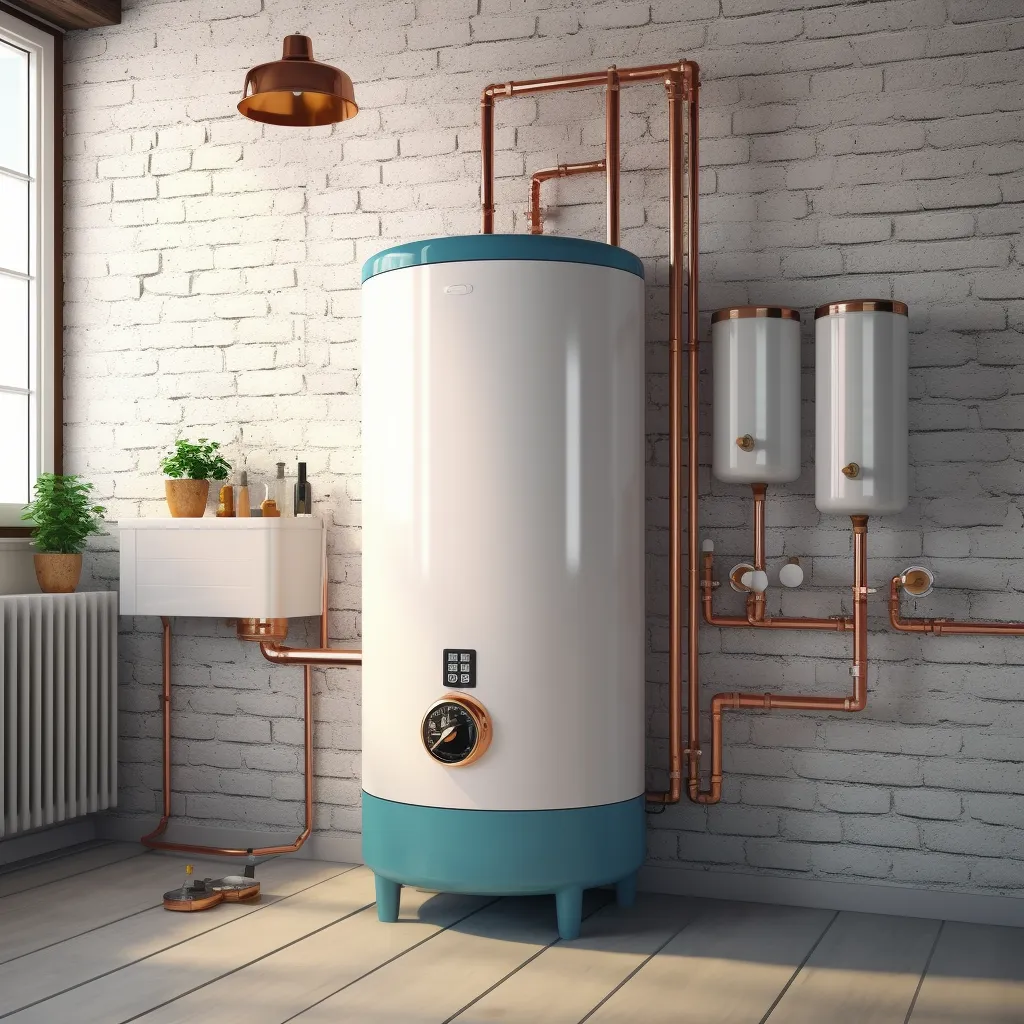
Are tankless water heaters energy-efficient?
Yes, tankless water heaters are known for their energy efficiency. Unlike traditional tank-based water heaters, tankless models heat water only when it's needed, eliminating the standby heat loss associated with storing hot water in a tank.
The on-demand heating process of tankless water heaters means they are not continuously using energy to maintain a reservoir of hot water, which results in significant energy savings. As a result, tankless water heaters are more energy-efficient and can help reduce utility bills, especially in households with lower hot water demands or irregular usage patterns.

Cost to buy and install
a tank water heater
The cost to buy and install a tank water heater can vary depending on several factors, including the brand, size, features, and your location. On average, a tank water heater can range in price from $500 to $1,500 for the unit itself.
As for the installation cost, it typically varies based on the complexity of the installation, any necessary modifications to plumbing or gas lines, and local labor rates. On average, the installation cost for a tank water heater can range from $500 to $1,000.
Therefore, the total cost to buy and install a tank water heater may be in the range of $1,000 to $2,500. It's essential to obtain quotes from different suppliers and installation services in your area to get a more accurate estimate based on your specific requirements. Additionally, consider the long-term energy efficiency and potential savings on utility bills when choosing a water heater to make the most cost-effective decision for your home.

Cost to buy and install
a tankless water heater
The cost to buy and install a tankless water heater can vary based on factors such as the brand, size, features, and your location. On average, the unit cost of a tankless water heater can range from $800 to $3,000 or more, depending on the model and its capacity.
As for the installation cost, it is generally higher for tankless water heaters compared to tank-based models. This is because tankless units may require specific venting, gas supply modifications, or electrical upgrades, which can add to the installation expenses. On average, the installation cost for a tankless water heater can range from $1,500 to $3,000 or more.
Therefore, the total cost to buy and install a tankless water heater can be in the range of $2,300 to $6,000 or higher. It's essential to obtain quotes from different suppliers and installation services in your area to get a more accurate estimate based on your specific needs and the complexity of the installation. While the upfront cost may be higher for tankless water heaters, their energy efficiency and long-term savings on utility bills can make them a cost-effective investment over time.


Common storage tank water heater maintenance issues
Common maintenance issues for storage tank water heaters include:
Thermocouple Issues: Gas-powered water heaters rely on a thermocouple to maintain the pilot light. If the thermocouple malfunctions, the pilot light may go out, affecting the water heater's operation.
Burner or Heating Element Problems: The burner or heating element in gas or electric water heaters may become faulty, affecting the heating efficiency.
Noisy Operation: Sediment buildup or other issues can cause banging or popping noises during operation.
Leaks: Corrosion or worn-out components can lead to leaks in the tank or the surrounding connections.

Common tankless water heater maintenance issues
Tankless water heaters are not immune to maintenance issues:
Ignition Problems: Gas-powered tankless water heaters may experience ignition issues, affecting the unit's ability to provide hot water.
Error Codes: Tankless water heaters often have error codes to indicate specific issues or malfunctions. Understanding these codes is essential for troubleshooting.
Filter Maintenance: Some tankless models have filters that require regular cleaning or replacement to prevent clogs and maintain efficiency.

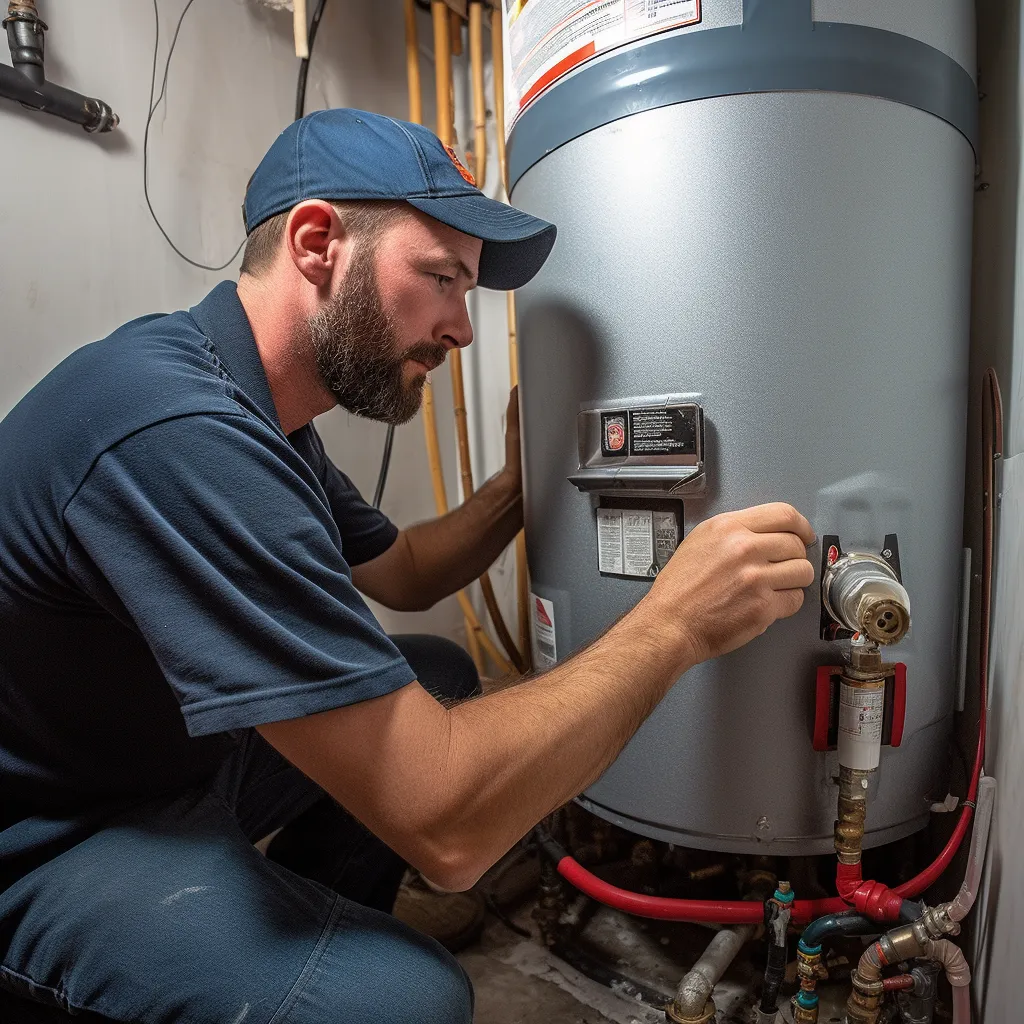
What is the lifespan of a tank water heater?
The average lifespan of a tank water heater is typically around 10 to 15 years. However, this can vary depending on various factors, such as the quality of the unit, the frequency of maintenance, water quality, and usage patterns.

What is the lifespan
of a tankless water heater?
The lifespan of a tankless water heater is generally longer than that of a traditional tank water heater. On average, tankless water heaters can last around 20 years or more with proper maintenance and care.


Gas vs electric water heaters
Ultimately, the choice between gas and electric water heaters depends on factors such as energy costs in your area, your household's hot water demands, installation requirements, and personal preferences. It's essential to carefully consider these factors when selecting the most suitable water heating system for your home.
How to decide if a tankless or a tank water heater
is right for you
Deciding between a tankless or a tank water heater requires considering several factors specific to your household's needs and preferences. Here's a step-by-step guide to help you make an informed decision:
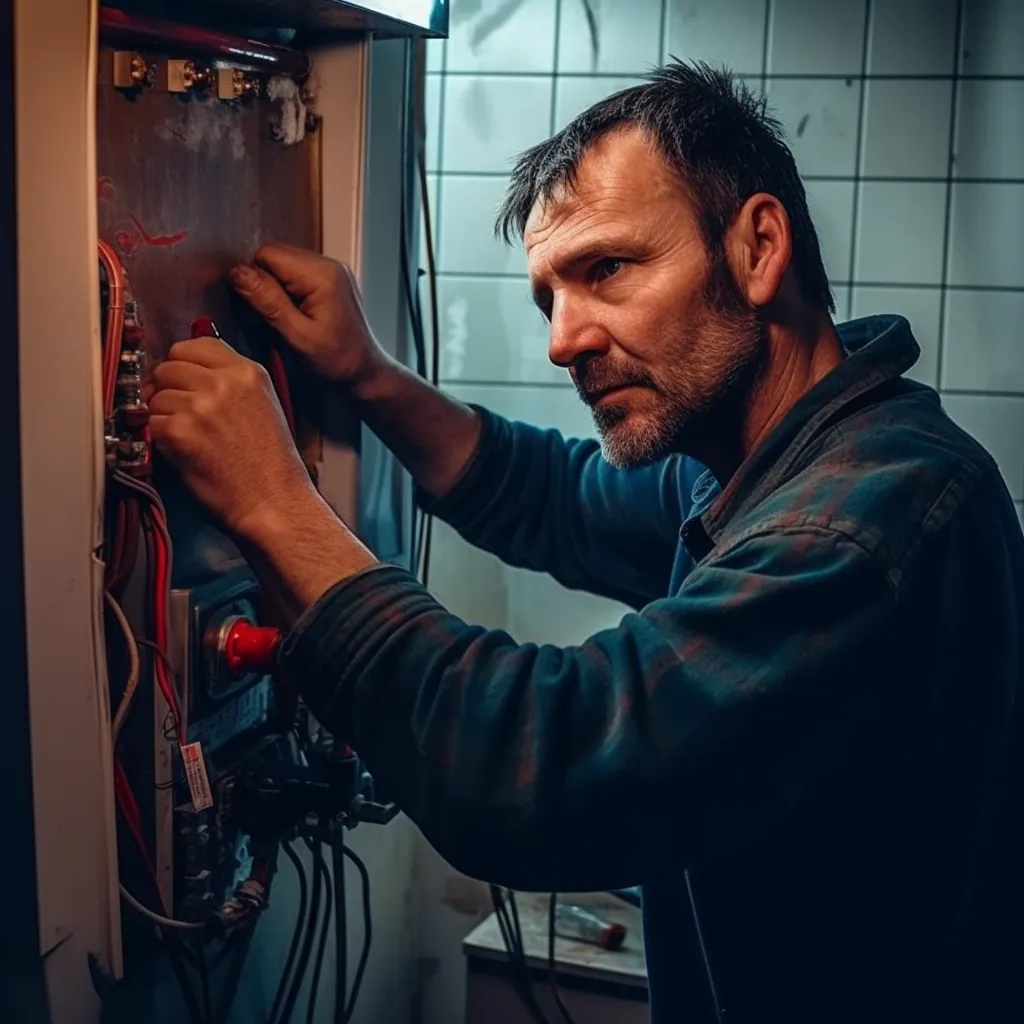
Hot Water Demand: Assess your household's hot water demand. Tankless water heaters are ideal for homes with a moderate to low demand for hot water and fewer simultaneous hot water needs. Tank water heaters are better suited for larger households with higher hot water demands.
Space Availability: Consider the available space in your home. Tankless water heaters are compact and wall-mounted, saving valuable space, while tank water heaters require floor space for the storage tank.
Energy Efficiency: Evaluate your desire for energy efficiency. Tankless water heaters are more energy-efficient since they only heat water when needed, reducing standby heat loss. Tank water heaters have standby heat loss, which can lead to higher energy consumption.
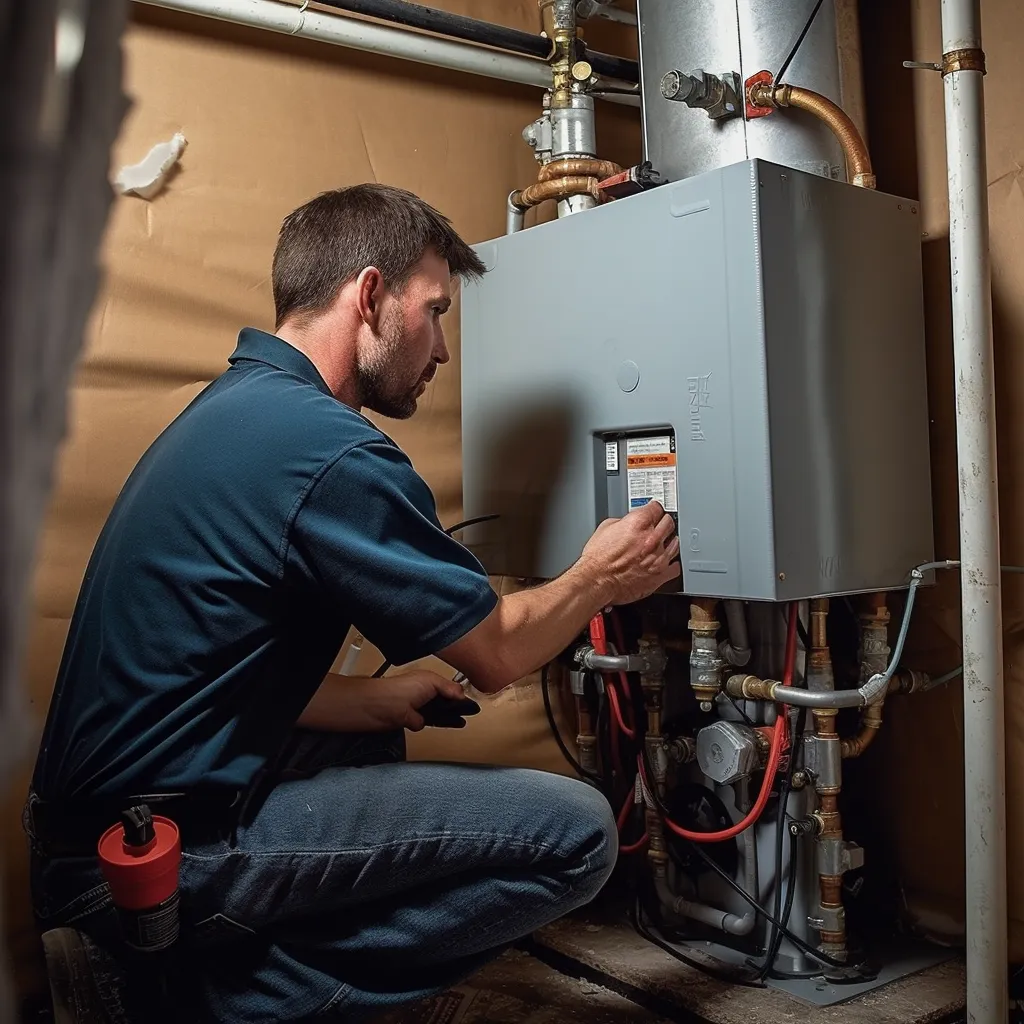

Is it important to hire a licensed professional?
Yes, it is crucial to hire a licensed professional for water heater installation, repair, or replacement. Water heaters involve gas lines, electrical connections, and high-temperature components. Licensed professionals have the knowledge and experience to handle these potentially hazardous aspects safely, minimizing the risk of accidents or injuries during installation or maintenance. Licensed professionals are familiar with local building codes, regulations, and safety standards. They will ensure that the installation or repair work meets all the required codes, reducing the risk of future issues and ensuring your home's safety and compliance.

Researching tankless vs tank water heaters
is important
Absolutely, researching tankless vs. tank water heaters is essential before making a decision. Each type of water heater comes with its own set of advantages and considerations, and understanding these differences will help you choose the right system for your home and needs.
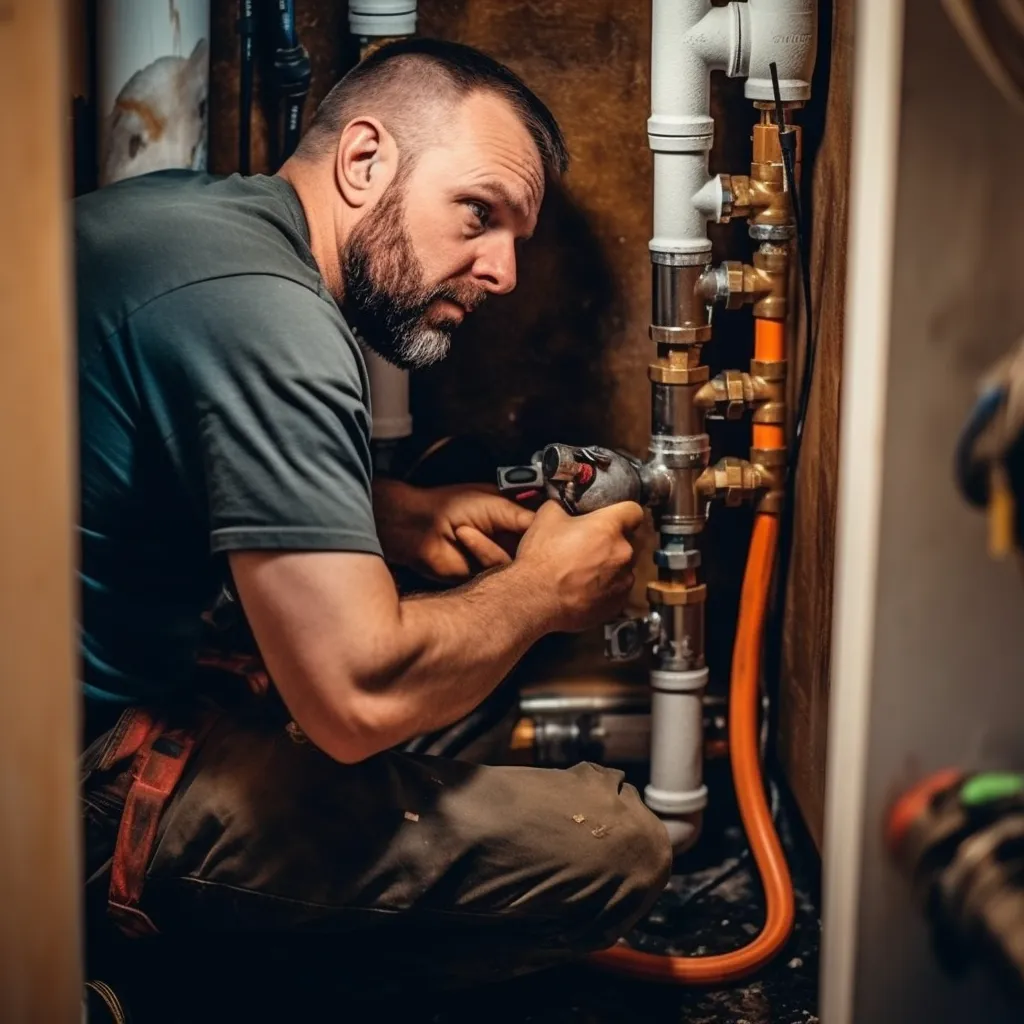
Contact Us
GET IN FULL TOUCH
PHONE: (209) 370-0794
EMAIL:
orlando@waterheatermodesto.com
Westside Plumbing
Modesto, CA 95354
